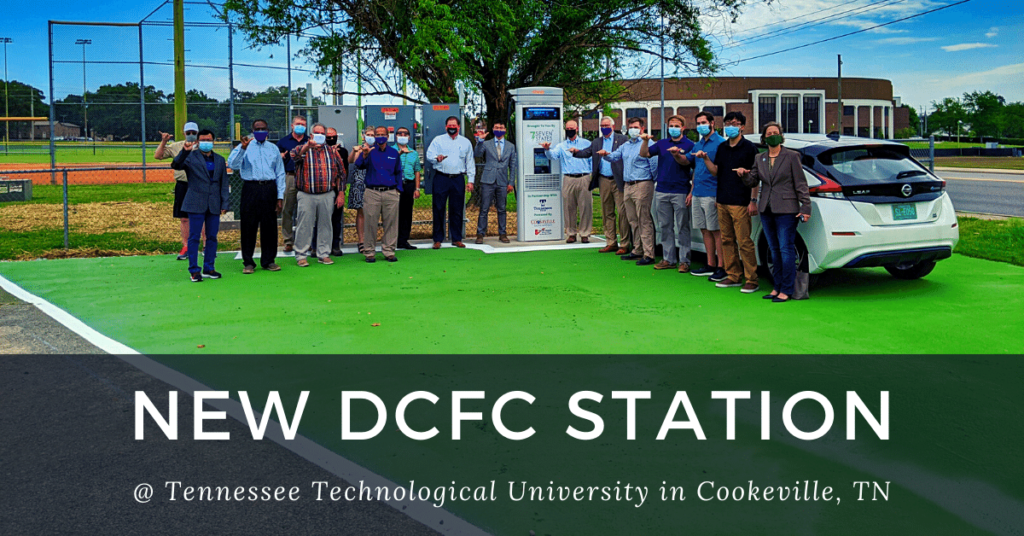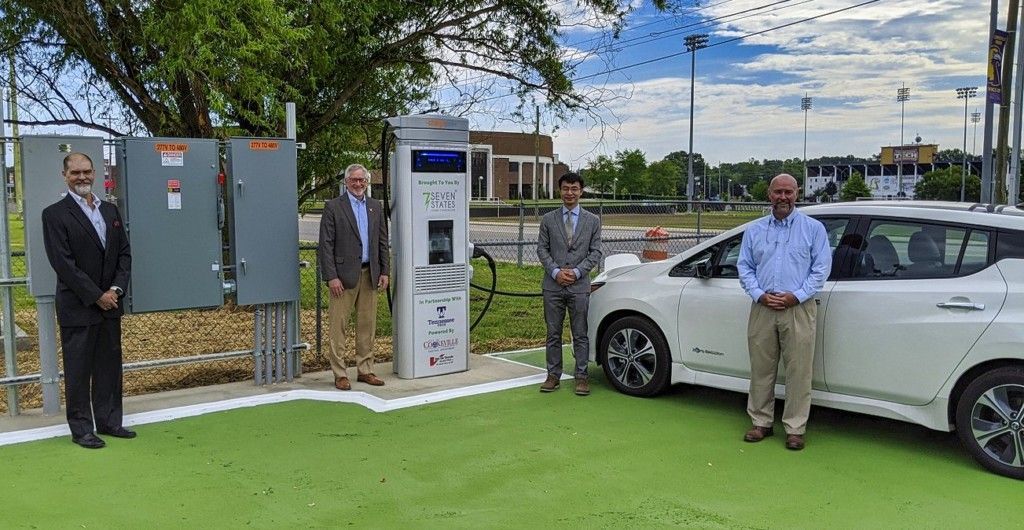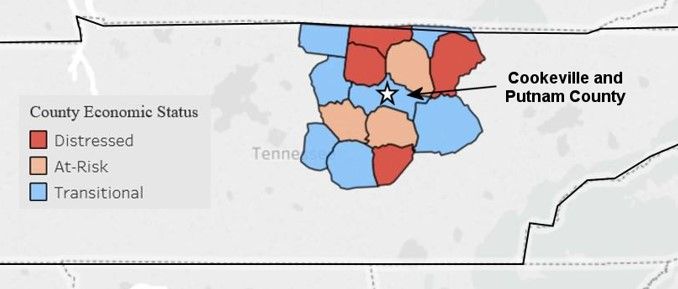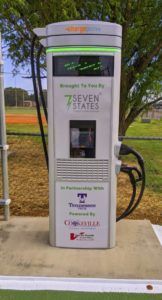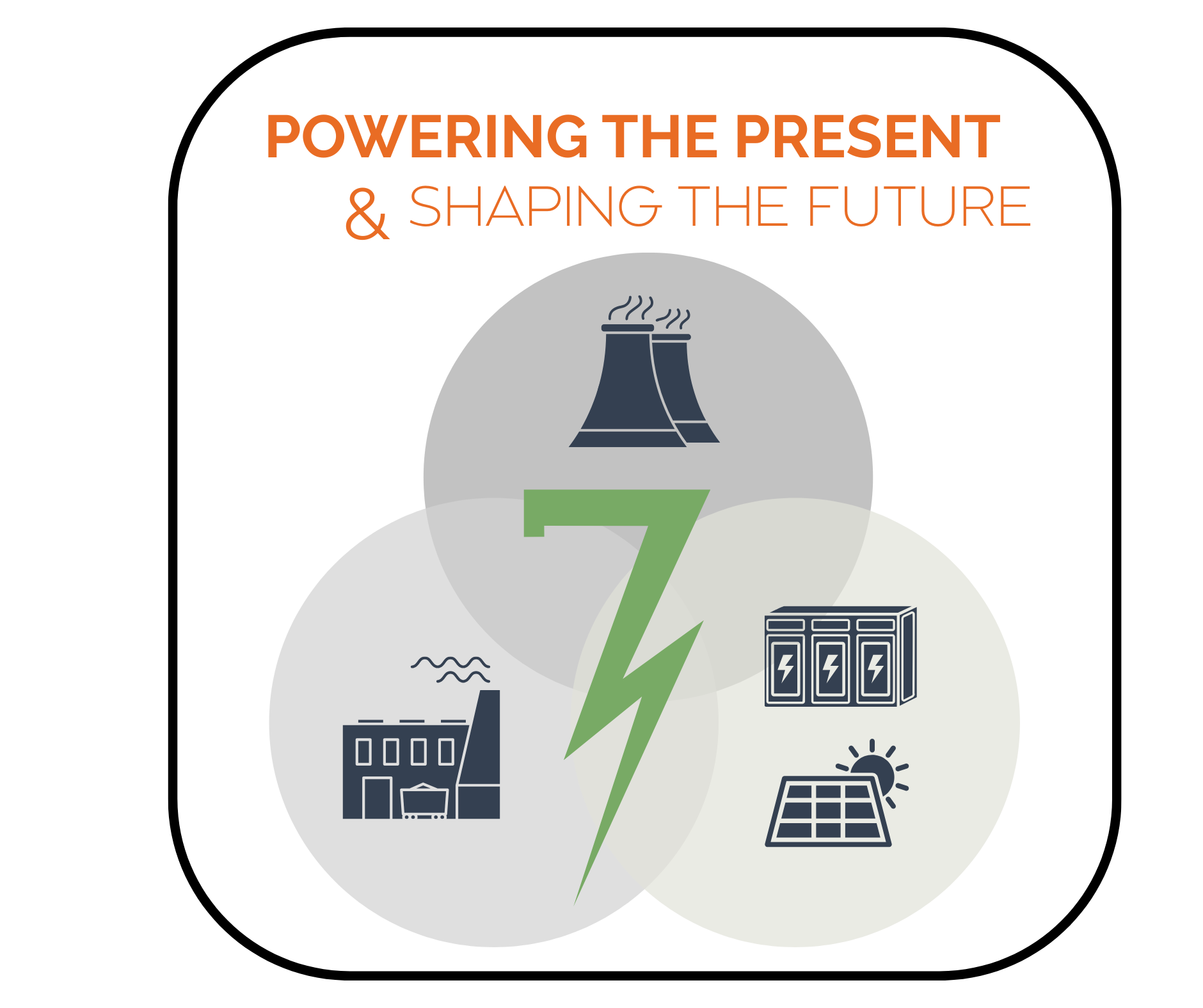Also, in attendance at the DCFC unveiling was TTU’s President, Dr. Phillip Oldham. “We are pleased with Dr. Chen’s EV initiative at TTU. This project fits well within TTU’s Grand Challenge Initiative called Rural Reimagined , which focuses on how the university will harness science, technology, and innovation to transform rural living,” said President Oldham. “Tennessee Tech serves more distressed counties than any other state university in Tennessee and is centrally located to eight counties in great need. We have an opportunity where this EV initiative can drive change through developing partnerships that will help transform our rural community. We find this opportunity energizing and a step-forward for Tech and our community overall.”
While the Nissan Leafs will be utilized to showcase EV operations and driving ease to individuals and fleets in the entire region, the E-450 shuttle will be used specifically by the transportation department of the Upper Cumberland Human Resource Agency. They plan to first utilize a TTU and downtown Cookeville route to operate the shuttle, but after any initial problems are worked out and the shuttle has proven its reliability in service, the department plans to move it to other routes around the 14-county region. Finally, the plug-in hybrid F-250 was specifically chosen as ‘best choice’ for getting farmers in the counties to test drive an electric vehicle. Jonathan Overly of ETCleanFuels notes, “if we really wanted to change the region’s farmers opinions about EVs, we thought that range restriction could make them test driving an EV a nonstarter. Thus, we elected to go with a plug-in hybrid so that they could finish any chore or task that they might handle on any given day.” The three Leafs are already in use, while the E-450 and F-250 are still in the process of being converted by those respective partners, Phoenix Motorcars and XL Fleet.
TTU’s project includes partnerships with Nissan North America , the East Tennessee Clean Fuels Coalition , ChargePoint , Seven States Power Corporation , the Upper Cumberland Human Resource Agency , the University of Texas at Austin , Phoenix Motorcars , Lyft and Oak Ridge National Laboratory.
For more information about this grant and project, contact Dr. Pingen Chen at pchen@tntech.edu .
To view this press release in PDF format, click here.

